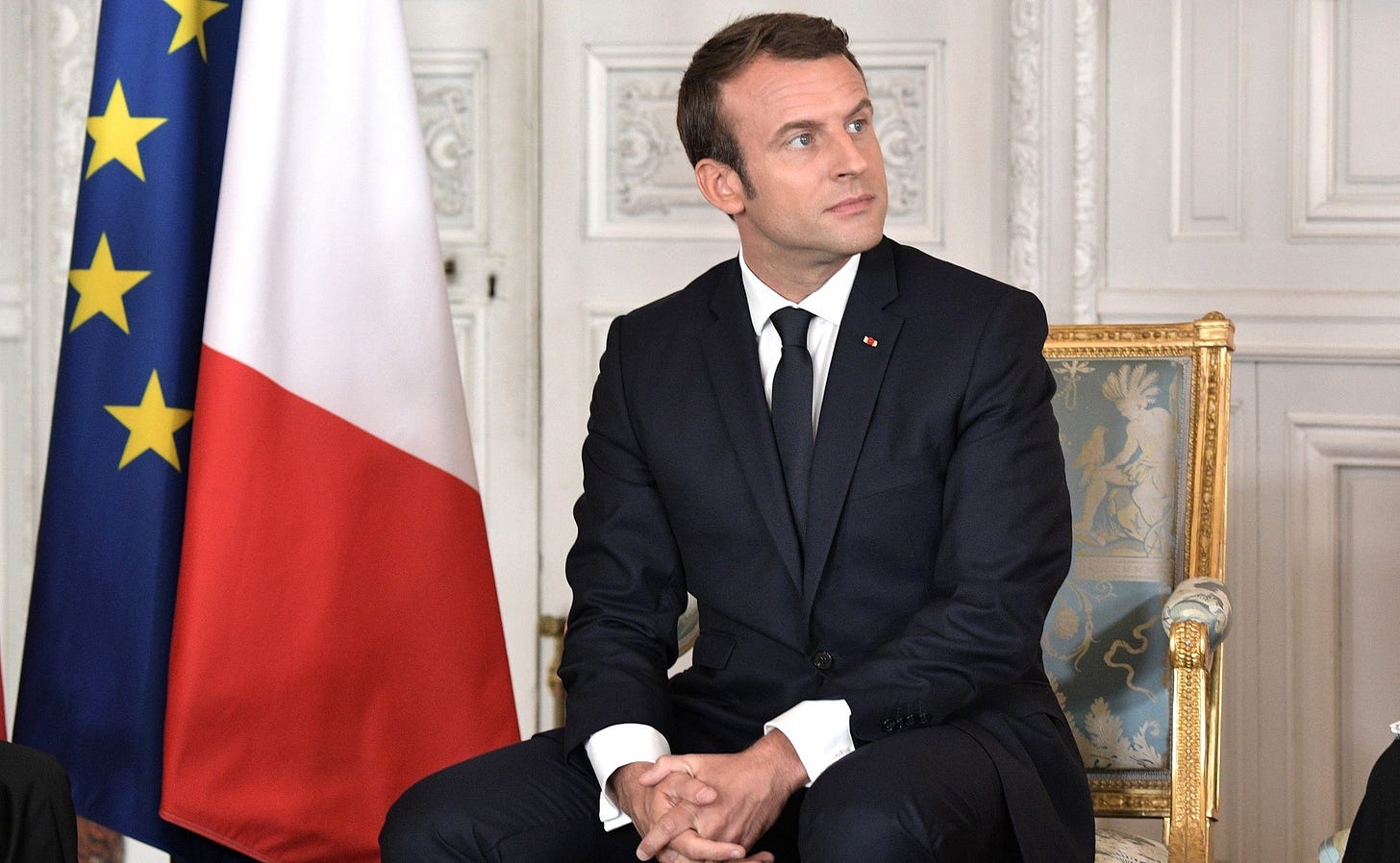[ Editorial ] The Case for Macron's Resignation
The only way out of France current political crisis is for the president to step down — something that should have happened back in July 2024.
Emmanuel Macron once again fled abroad — this time to Germany — as the political temperature rose in Paris, to scold the French and social media, like Louis de Funès delivering his recipe for potato soufflé in Le Grand Restaurant, while the unspeakable mess he created continues to rage.
Sébastien Lecornu, the former Minister of Defense who was parachuted in as Prime Minister just three weeks ago, actually thought he could cobble together a Macronist government without a majority — and even appoint Bruno Le Maire, the utterly unpopular former Finance Minister, as Defense Minister!
Macronism — a farce of careerists posing as a political movement — has lacked a majority since 2022. The French made that clear, effectively blocking Emmanuel Macron from governing the moment he was re-elected. They hammered the point home again in the 2024 European elections, delivering him a humiliating defeat, followed by his catastrophic recall of the National Assembly in June 2024. A triple electoral rebuke like that should have forced his resignation back in July 2024.
This morning, Sébastien Lecornu handed in his resignation to Emmanuel Macron — which the president predictably accepted. And, of course, the left-wing blowhards — led by Olivier Faure and former President François Hollande — are already claiming they’re “ready to govern,” as if that were even remotely possible. Not a single parliamentary group in the absurd patchwork called the New Popular Front can agree on anything, let alone muster a majority. Any government they try to form would be censured on day one. Meanwhile, Jean-Luc Mélenchon is calling an “emergency” NFP meeting — a transparently self-serving move to crown himself the left’s “natural” candidate. Obvious as a truckload of hubris.
The left is scrambling to avoid yet another recall of the National Assembly. The worn-out “Republican Front” recipe, designed to bar Marine Le Pen’s National Rally access to power, won’t work this time. The Socialists and the Greens are headed for a wipeout — and La France Insoumise won’t spare them, even if it’s unlikely that Jean-Luc Mélenchon’s far-left party can broaden its base enough to gain more seats in the Assembly.
In short, another recall would do nothing to fix the political wreckage — a disaster authored by Emmanuel Macron and all those who played the cynical game of backroom alliances during the last general elections. For the sake of their own political soup bowls, they deliberately made the country ungovernable. The result: France is now effectively governed from abroad — from Brussels.
In any Constitution, there’s the letter — which defines legality — and there’s the spirit — which defines legitimacy. Emmanuel Macron has never been legitimate. The judiciary intervened directly in 2017 to secure his election, trampling on the very spirit of the Constitution, which dictates that the judiciary shall not meddle in electoral processes or initiate prosecutions during election campaigns.
The case against François Fillon was blatantly asymetric. Take Bruno Le Maire, for instance: he also employed his wife — a painter — as a parliamentary assistant, yet he faced no scrutiny whatsoever. In a “normal” democracy, where equality before the law actually means something, the charges against François Fillon would have been dropped on that sole ground.
When a president appoints a government but fails to secure a majority from the people to actually govern, the spirit of the Constitution demands one of two things: change the government, or recall the National Assembly.
And if, after a recall of the National Assembly, the people once again deliver a stinging rebuke at the ballot box — denying the president any viable majority — then the same constitutional spirit dictates that he should resign.
It’s now up to Emmanuel Macron to plan his exit. But let’s be honest — he won’t do it unless he’s politically forced to, metaphorically with a gun to his head. Who will have that kind of courage? You can bet Macron is already angling to trade his resignation for some cushy international post. He won’t leave without guarantees — though the only thing he truly deserves in return are criminal charges, particularly over the Alstom case1.
In 2014, Alstom’s energy division was sold to General Electric, a move that some observers viewed as influenced by U.S. legal actions. Emmanuel Macron, as Economy Minister, played a key role in the sale of strategic national assets (Arabelle turbines, which power both France’s nuclear power plants and nuclear submarines). According to the late MP Olivier Marleix, rapporteur of the National Assembly investigation committee, it was a blatant case of corruption, with Macron allegedly “flushing” cash to investment banks, consultancies, law firms, and PR firms — which later funded his 2017 presidential bid. Olivier Marleix referred the case to the National Prosecutor’s Office for financial crimes. Olivier Marleix committed “suicide” on July, 8, 2025.





Merci et ouf!!!
Ne peut-il utiliser l'article 16???